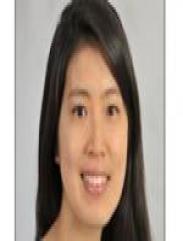B.A. University of Chicago 2008
My last three years at Yale Divinity School have intensely unraveled how I understood the world and how to be in it, challenging me to confront life and reality as it is and to sit with my sense of knowing and unknowing.
 I grew up as the only child of two seminarians and often moved between South Korea and various parts of the United States, including Georgia and New Jersey. My parents eventually settled in Korea, and I returned to the States on my own to attend St. Paul’s School in Concord, NH when I was 16. I then spent my undergraduate years at the University of Chicago, where the Great Books program brought reading and thinking to life for me. When I eventually came to recognize that my interests in philosophy, political theory and literature were rooted in theological questions, seminary then occurred to me as an option. I hoped to take some time away from academia, however, and moved to Los Angeles to work as an event planner for Human Rights Watch. The non-profit world raised urgent and serious questions about who we are and what we are in fact doing with our sense of moral and political responsibility.
I grew up as the only child of two seminarians and often moved between South Korea and various parts of the United States, including Georgia and New Jersey. My parents eventually settled in Korea, and I returned to the States on my own to attend St. Paul’s School in Concord, NH when I was 16. I then spent my undergraduate years at the University of Chicago, where the Great Books program brought reading and thinking to life for me. When I eventually came to recognize that my interests in philosophy, political theory and literature were rooted in theological questions, seminary then occurred to me as an option. I hoped to take some time away from academia, however, and moved to Los Angeles to work as an event planner for Human Rights Watch. The non-profit world raised urgent and serious questions about who we are and what we are in fact doing with our sense of moral and political responsibility.
The M.Div. degree program at YDS provided a theological vocabulary for further articulating these questions. I was introduced to medieval Christian mysticism, a world in which spiritual practice was embedded in the intellectual life. Reading the medieval texts with faculty and friends here has re-enchanted my understanding of scholarship and the life of faith. The tension and interplay between divine presence and our sense of God’s absence, between clarity and uncertainty, and between divine light and darkness, has come to shape and reshape my understanding of how we can experience God in this fragile and fractured world. My faith community at First Presbyterian Church here in New Haven, where I was on staff as the church administrator and where I have begun the ordination process, has also sustained me with warmth and support.
I will continue the ordination process in the Presbyterian Church and will be returning to the University of Chicago for a Ph.D. program in philosophy of religion. I am thinking through the relationship between patristic and medieval theology and contemporary continental philosophy. In examining how twentieth century philosophers have interpreted and appropriated medieval sources, I am interested in what constitutes our understanding of ‘modernity’ and how we engage with our own particular context.
As this chapter comes to a close, I am deeply grateful to my dear friends and mentors at YDS. They have taught me that the process of unraveling is itself what allows me to be more authentically rooted in myself and in the world.
| Attachment | Size |
|---|---|
| 3.09 KB |